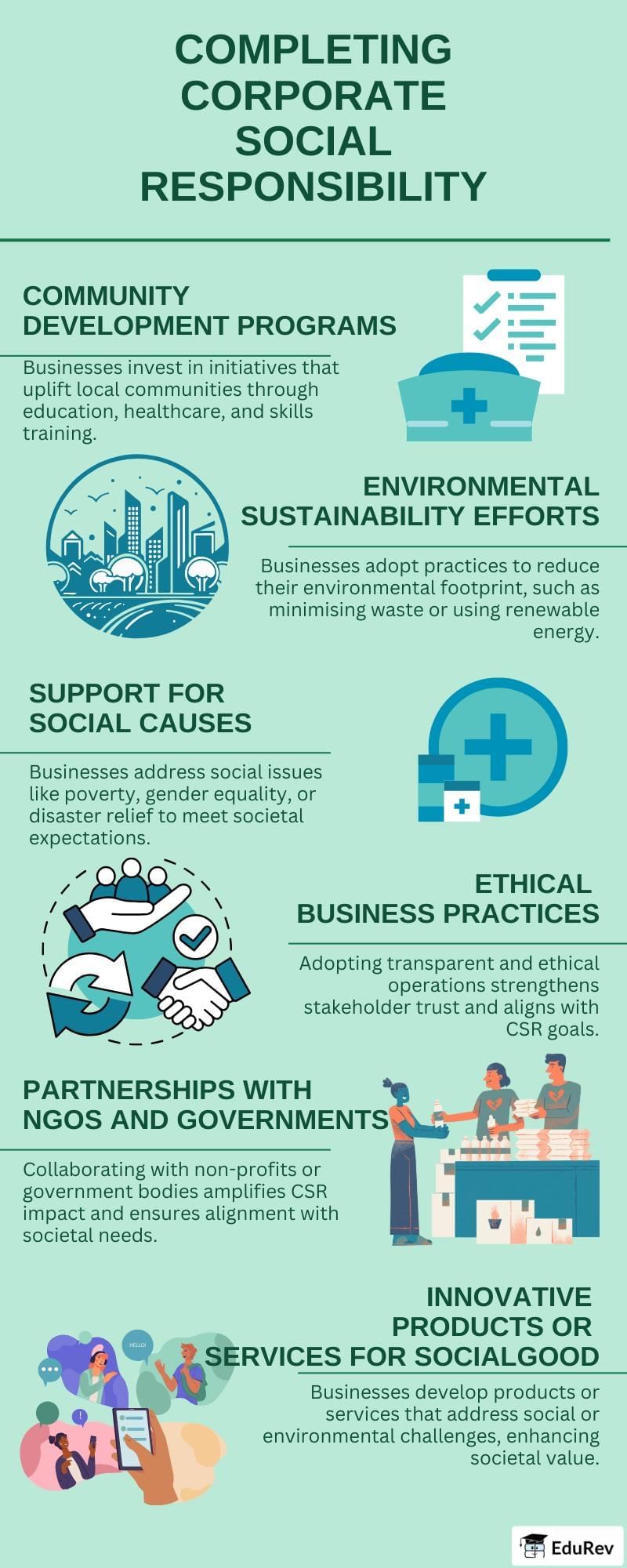Commerce Exam > Commerce Notes > Business Studies (BST) Class 11 > Infographic: Completing Corporate Social Responsibility
Infographic: Completing Corporate Social Responsibility | Business Studies (BST) Class 11 - Commerce PDF Download

The document Infographic: Completing Corporate Social Responsibility | Business Studies (BST) Class 11 - Commerce is a part of the Commerce Course Business Studies (BST) Class 11.
All you need of Commerce at this link: Commerce
|
38 videos|180 docs|28 tests
|
FAQs on Infographic: Completing Corporate Social Responsibility - Business Studies (BST) Class 11 - Commerce
| 1. What are the key components of business ethics? |  |
Ans. Business ethics encompass the principles and standards that guide behavior in the business world. Key components include integrity, transparency, accountability, fairness, and respect for stakeholders. These principles help businesses make decisions that not only comply with laws but also align with societal values and ethical norms.
| 2. How does corporate social responsibility (CSR) relate to business ethics? |  |
Ans. Corporate social responsibility (CSR) is a concept that refers to a company's responsibility to contribute positively to society beyond its financial obligations. It relates to business ethics as it encourages companies to operate in ways that are ethical and sustainable, considering their impact on the environment, society, and economy. CSR initiatives often reflect a company's ethical commitments and values.
| 3. Why is it important for businesses to engage in ethical practices? |  |
Ans. Engaging in ethical practices is crucial for businesses as it builds trust with customers, enhances brand reputation, and fosters employee loyalty. Ethical practices can lead to long-term success by reducing legal risks, improving stakeholder relationships, and attracting socially conscious consumers. Ultimately, ethical behavior can contribute to a more sustainable and equitable business environment.
| 4. What role do stakeholders play in business ethics and social responsibility? |  |
Ans. Stakeholders, including employees, customers, suppliers, investors, and the community, play a vital role in shaping business ethics and social responsibility. Businesses must consider the interests and concerns of their stakeholders when making decisions. Engaging with stakeholders helps companies understand societal expectations and enhances their accountability, leading to ethical practices and responsible corporate behavior.
| 5. How can businesses implement effective ethical guidelines? |  |
Ans. Businesses can implement effective ethical guidelines by establishing a clear code of ethics, providing training to employees, and creating an open environment where ethical concerns can be discussed. Regular assessments of ethical practices, accountability measures, and leadership commitment to ethical behavior are also essential. Furthermore, businesses should encourage reporting mechanisms for unethical behavior to ensure compliance and promote a culture of integrity.
Related Searches















